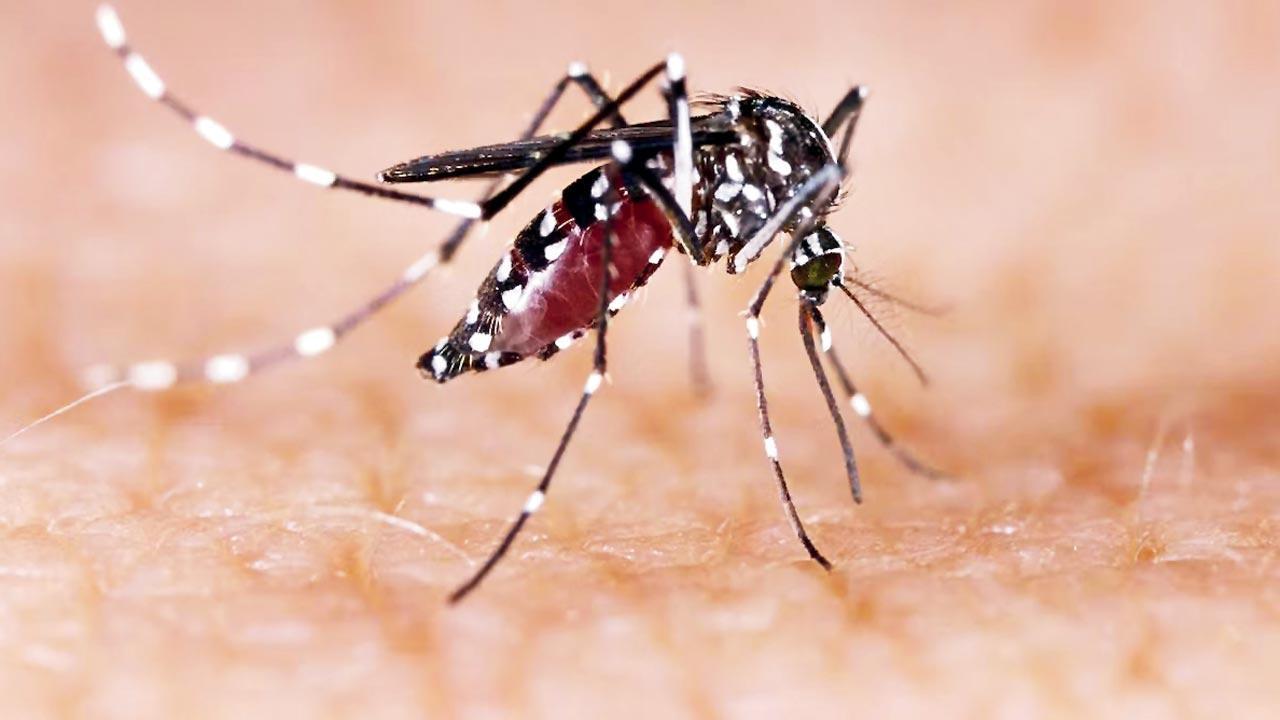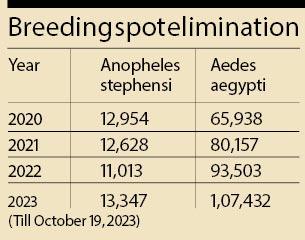Aggressive measures being looked at as malaria and dengue cases remain high

In September 2023, there were 1,313 cases of malaria and 1,360 cases of dengue. Representation pic
The Brihanmumbai Municipal Corporation (BMC) has issued notices to more than 17,000 premises after identifying mosquito breeding sites, but despite this ongoing effort, the prevalence of mosquito breeding sites responsible for spreading diseases like malaria and dengue has not diminished.
ADVERTISEMENT
Even in October, the BMC continued to report a significant number of malaria and dengue cases. In September 2023, there were 1,313 cases of malaria and 1,360 cases of dengue, while in October (up to October 30), 944 cases of malaria and 979 cases of dengue have been reported.
This is occurring despite the Mumbai civic body's efforts to detect and eliminate over one lakh mosquito breeding sites responsible for the spread of malaria and dengue.
The Insecticide Department has successfully eradicated 1,07,432 breeding sites of Aedes aegypti mosquitoes, responsible for dengue transmission, and 13,347 breeding sites of Anopheles stephensi mosquitoes, which spread malaria, in the year up to October 19. These figures mark a record high in the last four years, surpassing the approximately 1.06 lakh breeding sites eliminated in the previous year.
An official from the BMC expressed the challenges in addressing this issue, saying, “This year, we have issued more notices, collected more fines, and prosecuted more establishments than in the past three years. However, it is not always feasible to issue notices for every breeding site, as some are located on roads, nullahs, or in slums. Additionally, the procedure following the notice is cumbersome.”
Also read: Mumbai: ‘Take action against schools that don’t have RTE approval’
Chetan Chaubal, the head of the BMC’s Insecticide Department, emphasised the difficulty of inspecting every household to ensure they do not have materials that store water for more than seven days, saying, “Families with dengue cases in their homes understand the severity, but others often ignore it.”
In an effort to combat the spread of diseases like dengue and malaria, the Insecticides Department conducts regular inspections of homes and their surroundings. Data from recent years indicate that approximately 80 per cent of breeding sites are discovered in or near the homes of dengue patients. Larvae of dengue virus-carrying mosquitoes are commonly found in water pumps, plant vases, plates under flower pots, air conditioning systems, refrigerator trays, defrosting trays, tires, coconut shells, discarded plastic, water bottles, and other locations. Mosquito larvae that transmit malaria are typically found in wells, water tanks, fountains, cooling towers, and water stored at construction sites.
944
No, of malaria cases in Mumbai

 Subscribe today by clicking the link and stay updated with the latest news!" Click here!
Subscribe today by clicking the link and stay updated with the latest news!" Click here!







